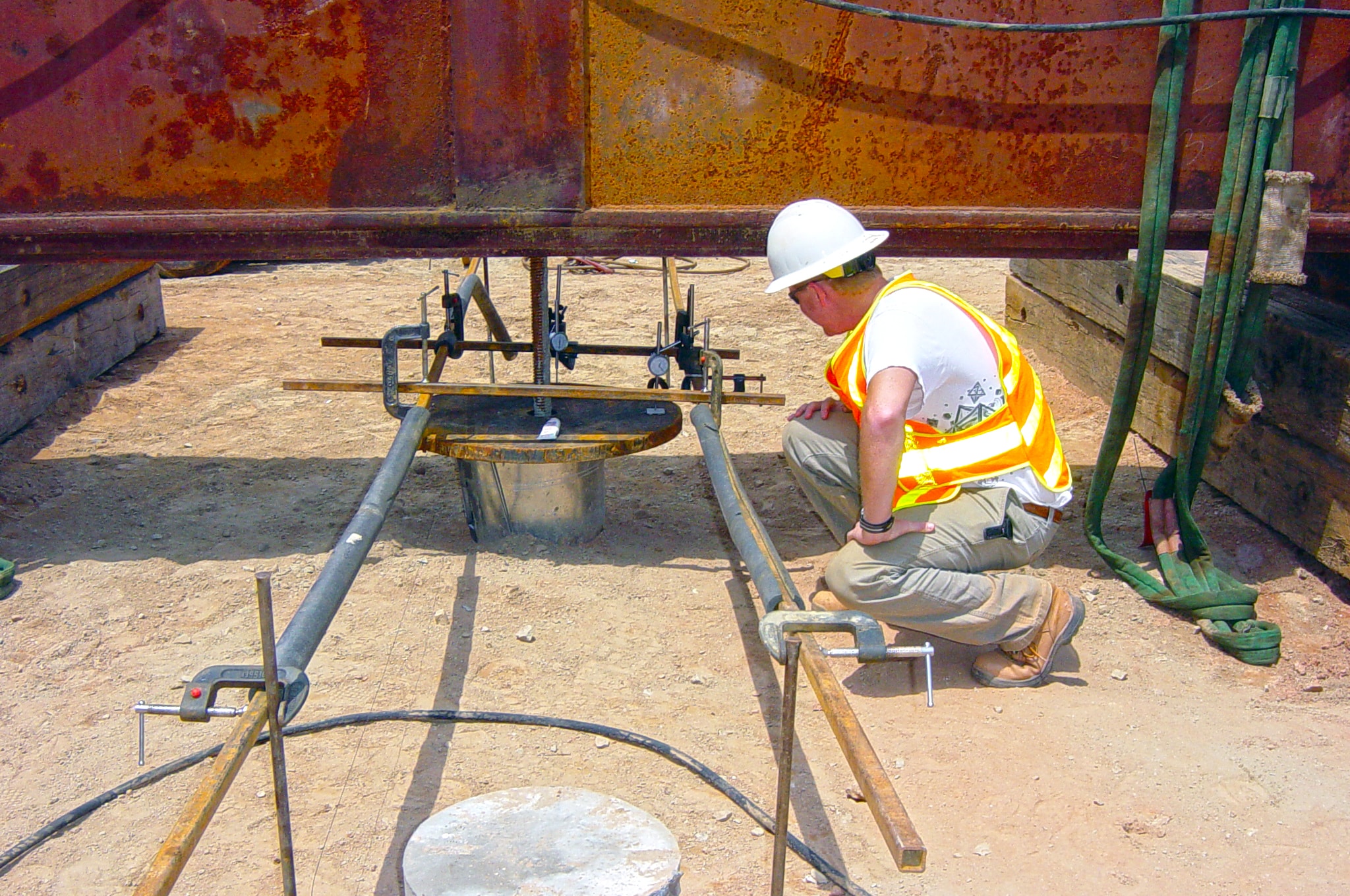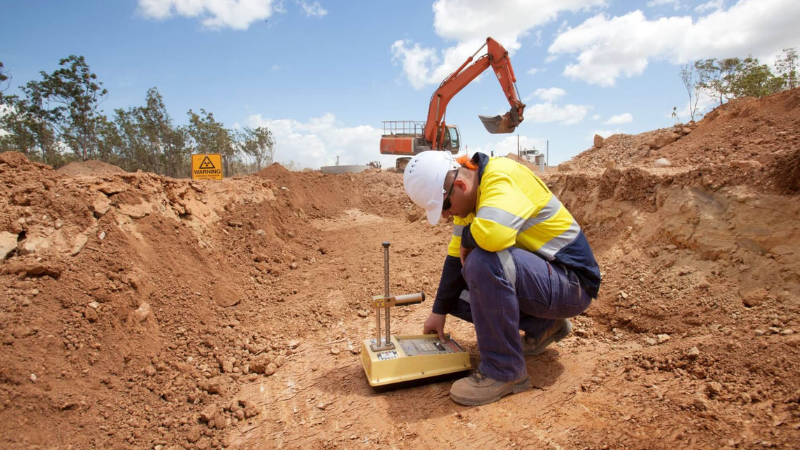Crucial Top Qualities of Effective Civil Consulting Engineers
Crucial Top Qualities of Effective Civil Consulting Engineers
Blog Article
A Detailed Summary of the Trick Obligations of Geotechnical Designers in Website Characterization and Ground Renovation Techniques for Engineering Solutions
Geotechnical engineers are essential to the effective implementation of design jobs, tasked with the crucial responsibilities of website characterization and the application of ground renovation methods. Their work includes a detailed analysis of subsurface problems, employing numerous testing techniques to determine soil and rock properties.
Role of Geotechnical Engineers
Geotechnical designers play a pivotal role in the layout and building and construction of framework by evaluating the behavior of dirt and rock under the surface - civil consulting engineers. Their obligations incorporate evaluating subsurface problems to notify layout choices that ensure architectural stability and security. By carrying out thorough evaluations of dirt residential or commercial properties, including shear leaks in the structure, strength, and compressibility, geotechnical designers give vital data that affects the option of proper building products and techniques
Along with examining soil mechanics, geotechnical engineers are entrusted with identifying potential risks such as landslides, sinkholes, and ground negotiations. Their proficiency assists mitigate dangers connected with these geotechnical phenomena, therefore shielding both the setting and public safety and security. They additionally collaborate very closely with various other design disciplines, guaranteeing that geotechnical factors to consider are integrated into general task layout.
In addition, geotechnical designers involve in the evaluation of existing frameworks, supplying recommendations for retrofitting and fixings when needed. Their thorough understanding of soil-structure interaction is crucial for the growth of sustainable framework solutions. In general, the role of geotechnical designers is indispensable to the effective realization of building tasks, guaranteeing they are safe, durable, and compliant with regulatory standards.

Site Characterization Processes
Effective site characterization processes are crucial for understanding the subsurface conditions that influence job design and implementation. Geotechnical designers use an organized technique to gather, assess, and analyze information concerning soil, groundwater, and rock attributes. This process begins with a comprehensive testimonial of existing literature and archaeological site information, offering insights into previous site conditions and possible difficulties.

Information evaluation follows fieldwork, where designers make use of geostatistical techniques to translate searchings for and produce geological models. Through persistent website characterization, geotechnical designers lay the groundwork for successful project execution, reducing unanticipated complications and optimizing source allocation.
Dirt and Rock Testing Methods
While recognizing subsurface conditions is vital, the selection of suitable soil and rock screening approaches is equally vital for accurate evaluation and layout. Geotechnical engineers use a range of screening strategies to assess the physical and mechanical buildings of dirt and rock materials.
Research laboratory tests, such as Atterberg limitations, grain size evaluation, and unconfined compressive toughness examinations, offer essential information on soil behavior under various moisture conditions and packing situations. These examinations aid identify dirt classification and anticipate settlement or shear stamina characteristics essential for structure design.
In-situ screening approaches, consisting of Standard Infiltration Tests (SPT), Cone Penetration Tests (CPT), and stress meter tests, permit engineers to collect information directly from the ground. These methods use valuable insights into the soil's thickness, consistency, and stratification without the demand for substantial tasting.
Rock screening normally includes core tasting and research laboratory analysis to analyze homes like uniaxial compressive strength and rock top quality designation (RQD) Together, these soil and rock testing methods allow geotechnical engineers to make informed decisions relating to site-specific difficulties, making sure the security and security of design remedies.
Ground Enhancement Strategies
Ground renovation methods are crucial for enhancing the design residential or commercial properties of soil, therefore increasing its load-bearing capability and decreasing settlement. These methods are essential in attending to difficulties provided by weak or troublesome dirts, which can considerably affect the stability and durability of structures.
Numerous ground enhancement strategies are employed, consisting of compaction, grouting, and soil stablizing. Grouting, on the various other hand, includes injecting a liquid product into the ground to fill gaps and enhance dirt cohesion.
Dirt stablizing includes an array of techniques, from chemical additives to mechanical therapies, focused on boosting the soil's resistance to erosion and contortion. Methods such as lime stablizing or concrete mixing modify the site here residential properties of the soil at a particle degree, boosting its overall performance.
Value of Geotechnical Assessments
Geotechnical evaluations play a crucial function in the planning and style of engineering jobs, as they provide crucial details regarding the subsurface problems. Recognizing soil residential properties, rock developments, groundwater degrees, why not try these out and prospective geohazards is essential for making certain the security and security of structures. These analyses enable designers to make educated decisions regarding website choice, design criteria, and building methods.
The significance of geotechnical assessments extends past preliminary project stages; they contribute in risk management and cost effectiveness. By determining potential concerns early, such as dirt negotiation, incline instability, or extreme groundwater, engineers can design suitable mitigation strategies, lowering the possibility of pricey hold-ups and architectural failures. Furthermore, these evaluations support conformity with regulative needs and enhance the sustainability of design methods.

Verdict
In final thought, geotechnical engineers are important to making sure the safety and security of design tasks through detailed website characterization and ground enhancement strategies. civil consulting engineers. Their organized technique to evaluating subsurface problems, incorporated with their recommendations for efficient ground alteration, substantially enhances dirt properties and load-bearing capacity. The know-how of geotechnical engineers not just helps with enlightened project preparation but additionally ensures compliance with regulations and fosters effective interaction amongst stakeholders, inevitably adding to successful engineering results
Geotechnical engineers play an essential function in the layout and construction of facilities by evaluating the actions of dirt and rock under the surface. By conducting detailed analyses of soil residential properties, consisting of shear compressibility, stamina, and leaks in the structure, geotechnical engineers Your Domain Name give important information that affects the option of ideal building materials and methods.
In enhancement to analyzing dirt technicians, geotechnical engineers are tasked with recognizing possible hazards such as landslides, sinkholes, and ground negotiations. Geotechnical engineers utilize a systematic method to gather, assess, and interpret data concerning soil, groundwater, and rock characteristics. By determining potential concerns early, such as dirt settlement, slope instability, or too much groundwater, designers can devise ideal mitigation techniques, decreasing the likelihood of pricey hold-ups and structural failings.
Report this page